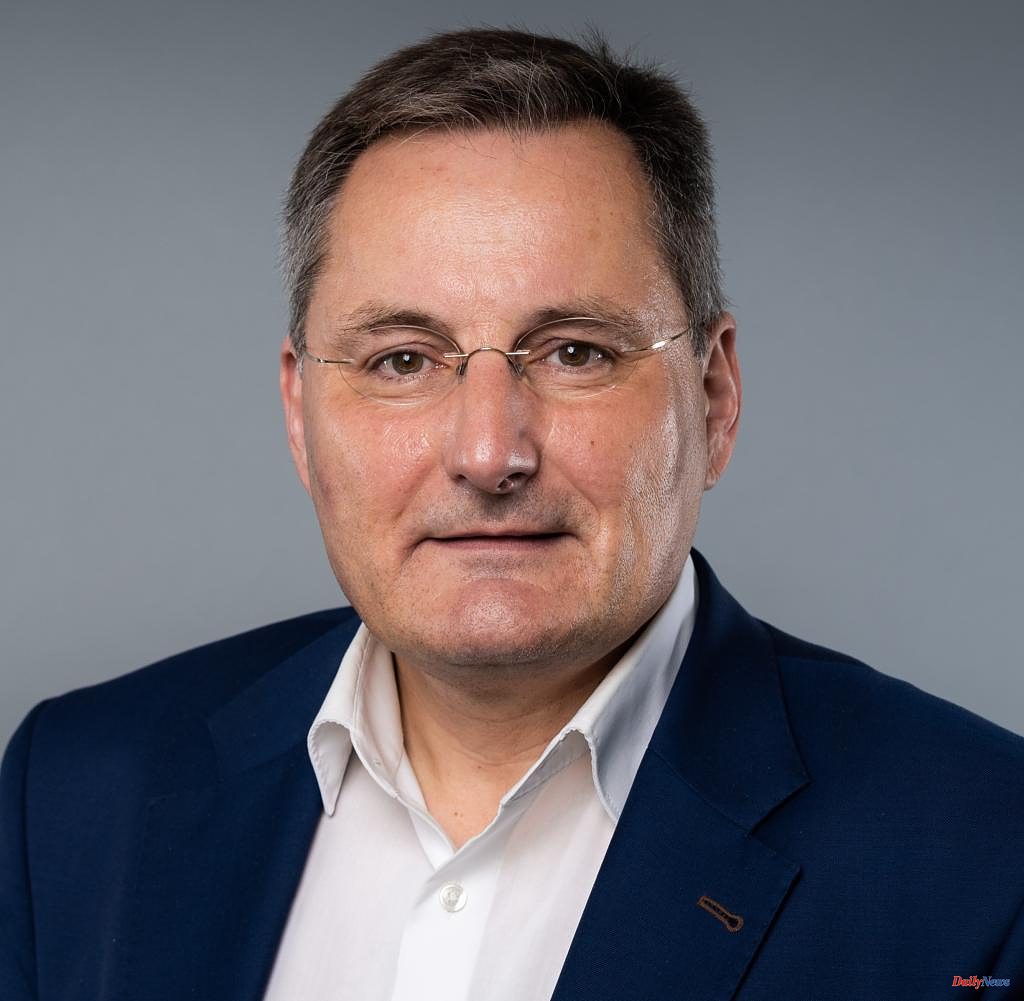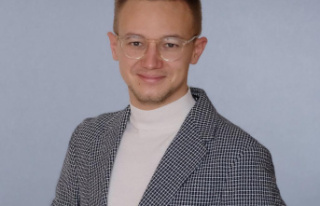It is a world that is difficult for a layperson to grasp and understand. Companies, universities and research institutes are working on the development and construction of the first quantum computers, which should open new doors into the digital universe. Long before these completely different computers go into operation, questions about the security of all existing digital systems, from countless files to data centers, inevitably arise today.
"Quantum computers will be able to calculate 100 million times faster than today's computers that work on purely binary logic," said Lars Reger, Head of Germany and Chief Technology Officer of semiconductor manufacturer NXP Semiconductors, WELT. "This means: A quantum computer will be able to crack practically every security key, no matter how high, in a short time. We therefore need to develop new digital security keys that can withstand the power of quantum computers.”
NXP Semiconductors, which operates worldwide with production and sales locations, is based to a large extent on the former semiconductor division of the electronics group Philips. NXP Semiconductors bundles its research work at the location in Hamburg-Lokstedt. There, the group has developed what is currently probably the world's most secure digital standard for generating encryption.
"The US National Institute of Standards and Technology (NIST) is working to define a global public key encryption standard that is protected against attacks from both conventional and quantum computers," says Reger in his office in Lokstedt. "In a kind of tender, 69 participants submitted procedures for this, four concepts remained in the final selection, two of them from NXP Semiconductors and its partners such as IBM." For the generation of secure keys, the NIST chose the "grid-based cryptography algorithm Crystals -Kyber” decided. Another NXP co-authored algorithm, Classic McEliece, is still in final selection.
Especially at this time - with Russia's war of aggression in Ukraine and China's increased aggression against Taiwan - the idea that, for example, dictatorships like these two could wage cyber war on a whole new level in the future, that they might succeed in destroying sensitive digital systems such as to crack organizations like NATO. However, the relevance of quantum computers and their future software goes much further, ultimately into the everyday lives of billions of people, for example in the security of money cards or bank accounts.
Science and industry have come a long way in the development of quantum computers. Classic computers always work in one of two states, 0 or 1, negatively or positively charged. To put it simply, quantum computers can assume many physical states at the same time. The basis for this are individual quantum mechanical states, so-called quantum bits.
"Imagine you are standing in a long hallway with many locked doors and you want to find the one unlocked door to exit the hallway," says Benedikt-Sebastian Mehmel, project manager for quantum computing at the Artificial Intelligence Center Hamburg (ARIC). . "They and also a classic computer would now 'open' all the doors one after the other to check which door is locked. Depending on your luck and the number of doors, this could take minutes to hours. In contrast, a quantum computer can include all these doors in its calculations at the same time, does not have to 'open' each door individually and is therefore significantly faster in determining which door is unlocked."
Quantum computers are not necessarily and automatically more powerful than today's mainframes, says Mehmel. The machines would have to be precisely adjusted and programmed to solve specific problems. Experts expect quantum computers to be superior in the future, especially where results are needed for highly complex calculations within a short time.
“Regarding actual applications, quantum computers can act up to a million times faster than classic computers when it comes to optimization and combinatorics problems in logistics, climate simulation, materials research or cryptology, to name just a few,” says flour.
How quantum computers will work in everyday life in the future is not yet clear. The computers are extremely sensitive. In order to generate quantum bits, for example, individual atoms must be specifically controlled and activated using laser technology. To do this, users need vibration-free environments, ideally under vacuum conditions close to absolute zero at minus 273.15 degrees Celsius.
And long before such hyper-computers are ready for series production, the security systems have to be redesigned. "The Crystals-Kyber post-quantum cryptography algorithm co-developed by NXP Semiconductors is an integral part of the strategy to also protect classic computers and the associated data flows from attacks by quantum computers," says Mehmel. “The new standard is already relevant today. One should not wait ten years to start making classic computers, mobile phones and other embedded technical devices quantum-proof. Because then the associated possible replacement of hardware would come too late.”
There is also a risk, for example, that the data streams encrypted today would be collected and subsequently decrypted in ten to 15 years. "To get this problem under control, it is very important to define and use new post-quantum cryptography standards as early as possible," says Mehmel.
From Mehmel's point of view, the Hamburg location can and will play an important role in the development of the quantum computer and in the further development of artificial intelligence in the coming years. The necessary networks for this are currently being established and further expanded, with Hamburg universities and research institutes such as the Technical University of Hamburg (TUHH), the University of Hamburg or the X-ray laser center Desy, but also with application-oriented large companies such as Airbus, NXP Semiconductors or HHLA.
"With a specially founded quantum computing innovation center of the German Aerospace Center, there is also an infrastructure in the development of quantum computers with a special proximity to industrial research," says Mehmel. The Hamburg metropolitan region “makes the best possible use of its potential and plays an important role internationally in the development of quantum computing”.
At NXP Semiconductors, the investment programs for post-quantum secure encryption at the Hamburg site have been running since 2015. NXP is also involved in a corresponding program of the European Union. One NXP employee each is responsible for the development of Crystals-Kyber and Classic McEliece.
That sounds modest - but, says Lars Reger, it should not hide the great effort that the company has been putting into this topic for years: "It will now be exciting to see who will be the first to use this new encryption standard be, for example governments, banks, NATO partners or operators of critical infrastructure. The first products with this new key will be available in 2024.”
Although countries such as China or Russia are also running extensive digital developments of their own, "Many countries will foreseeably follow the recommendation of the National Institute of Standards and Technology - the USA simply has a pioneering function here." Regardless of the quick and direct benefit of the new standards One thing is already certain for him: "This innovation with its many findings will not harm us, even regardless of the introduction of quantum computers."












